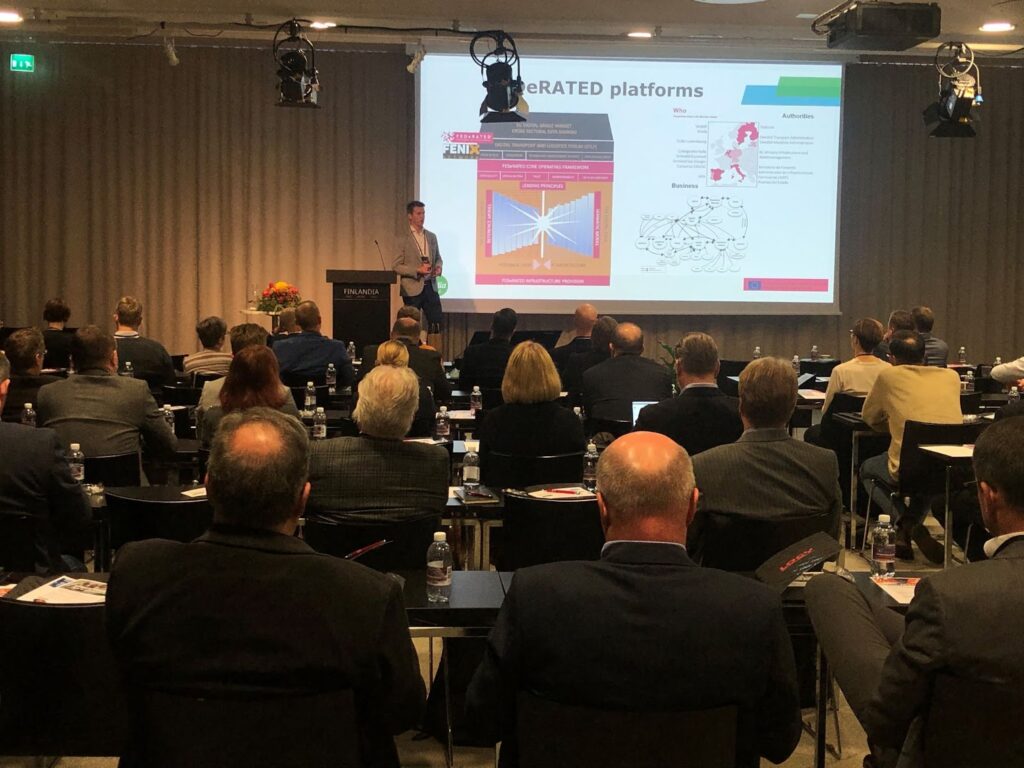
On October 28th, 2021, LOGY’s Transport Days 2021 was organized at Finlandia Hall with the theme Trends and Opportunities. After about 1.5 years of webinar sessions, a physical, so-called traditional seminar, felt really comfortable. I had the honor of being one of the speakers at the event and I was able to present Vedia’s work on the FEDeDERATED project, and in particular, the sharing of logistics data and the automatic border crossing, which we pilot in cooperation with Finnish Customs.
COVID-19, data and emissions
There was a hall full of logistics professionals gathered at Finlandia Hall to hear and discuss logistics trends and the future. Three themes rose clearly above the others: corona and its effects, data and its utilization, and emissions. The emphasis on emissions in particular was something that was not on this scale before COVID-19. Before the pandemic, the emissions were already included in the presentations, but usually only the last slide of the presentations was reserved for them, or they appeared in the speech in the form: “and then those emissions”. Now, however, emissions were a key part of the show.
Emissions were discussed from many different perspectives and a wide range of different reduction and control measures were introduced to reduce them. The monitoring of emissions was seen as one of the major change forces, which is why there is a desire to monitor the data of transport chains even more and at a more accurate level. The presentations also pointed out that if large transport customers, such as Ikea, only wake up to low emissions when consumers really demand it, buyers are already late and the game has already been played in that respect.
The fuel types of the future transportation fleets
Volvo presented the transport equipment of the future and especially the fuel types used on them. It is clear that it’s unnecessary to wait for one silver bullet, but in the future, we will see several different fuel types and their combinations to be used. The traditional internal combustion engine will also last a long time, but it is hoped that it will be powered by biofuels. The variety of hybrid combinations will certainly pose a challenge to the industry in terms of which fuel type is suitable for each need and how to get the most out of each fuel type. Only through close monitoring of vehicles and continuous monitoring of consumption and emissions can ensure that the use of any fuel type is efficient and sensible.
In addition to the great content, it should be noted that being physically at the event brought a lot more to the day. Discussions that took place face-to-face or in small groups during the breaks took many things forward in an instant and new and interesting departures were prepared. So the lesson from this is that while webinars have provided a really good way to communicate, traditional seminars are still needed and there is a place for them.
Please, be noted that next time, the FEDeRATED project will be presented with a hybrid model at the FEDeRATED Mid Term in Italy, which can be registered here.

Author:
Lasse Nykänen
Project leader
lasse.nykanen(a)vedia.fi
